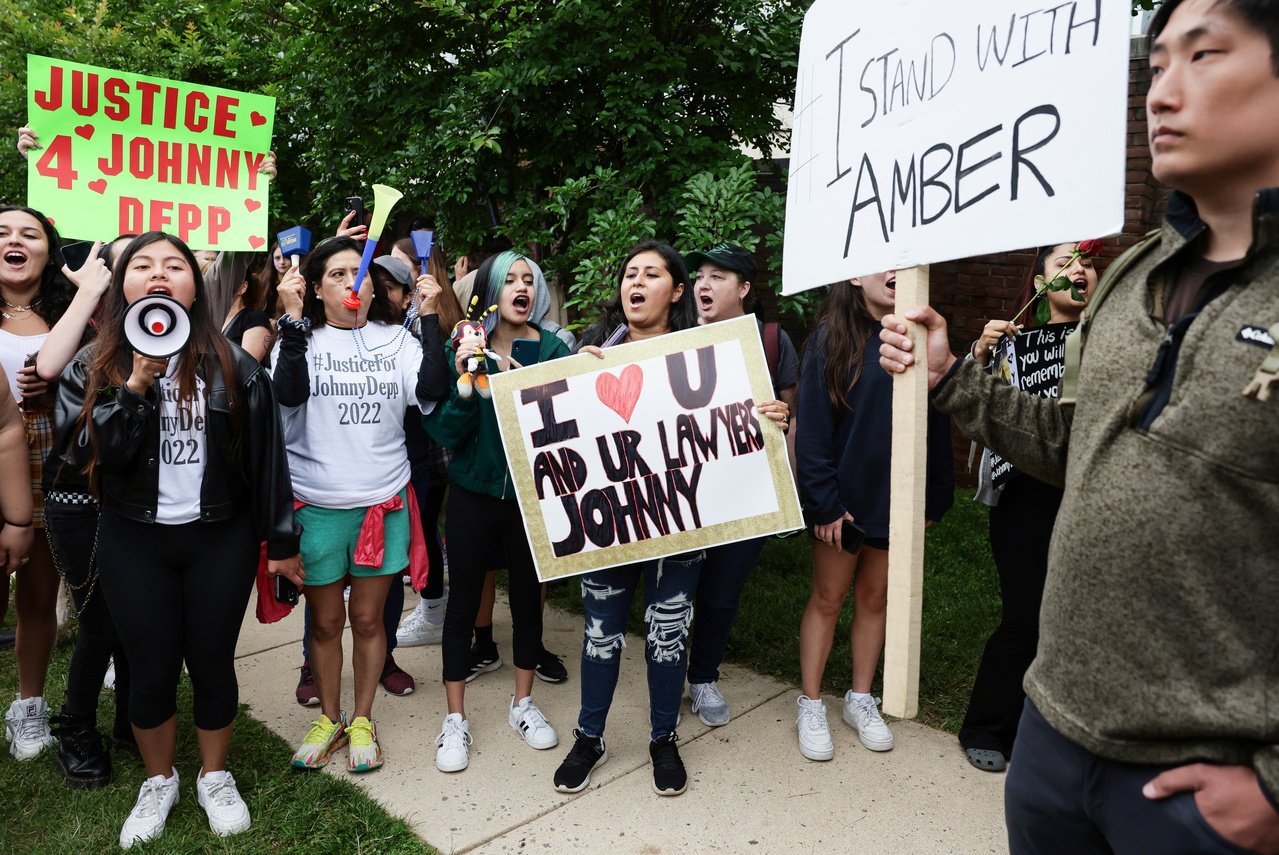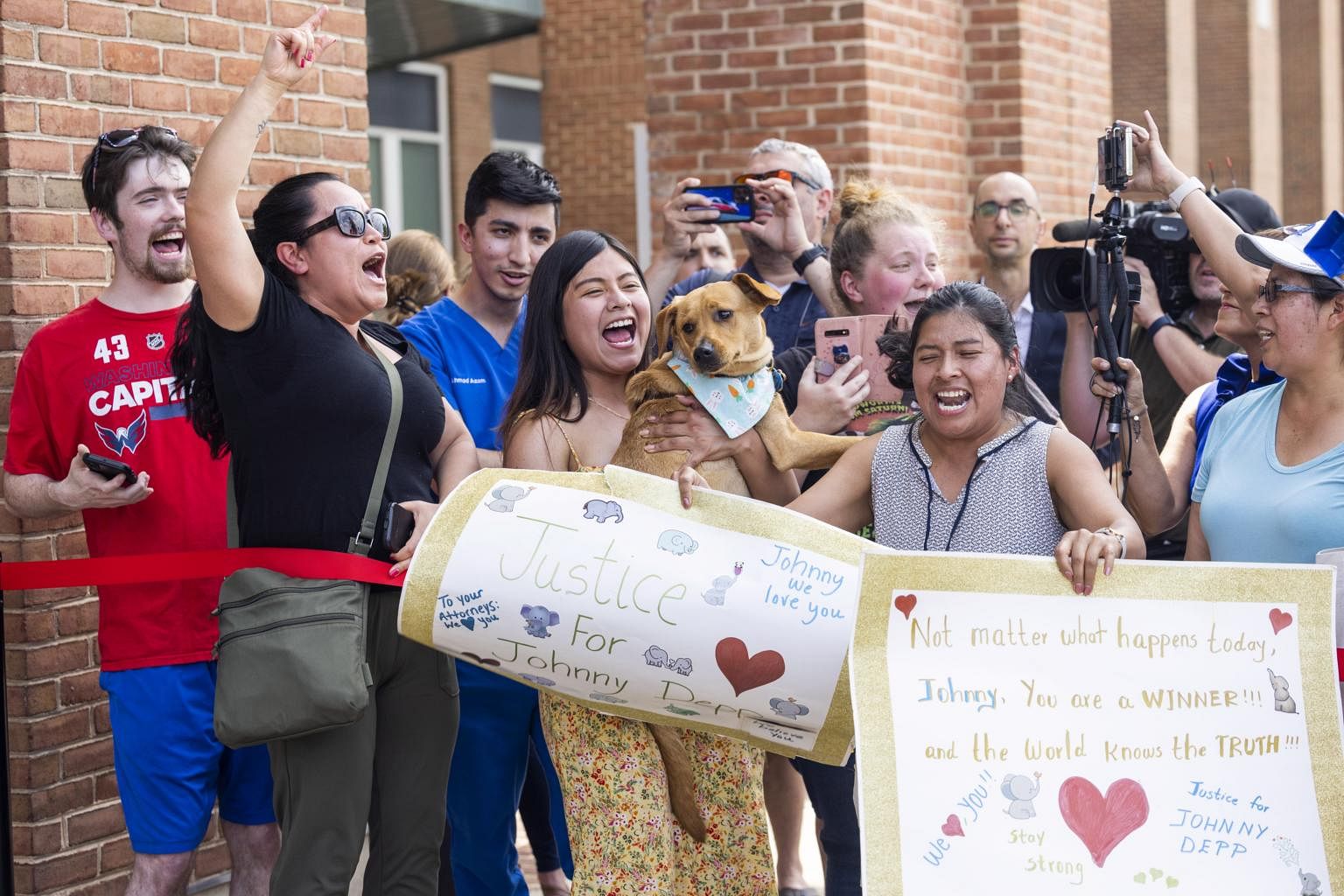Depp vs Heard: A trial by TikTok?
Sign up now: Get ST's newsletters delivered to your inbox

Fans outside the Fairfax County Circuit Courthouse on the final day of the defamation trial on May 27, 2022.
PHOTO: REUTERS
Adrian Tan
Follow topic:
Actors Johnny Depp and Amber Heard sued each other for defamation. A jury in the United States found both of them liable, but awarded significantly more damages to Depp (US$15 million) than to his ex-wife Heard (US$2 million).
Here are my key takeaways from the case.
Free speech costs money
It's common for the US to call itself the land of free speech, and for the West to criticise Asia for perceived restrictions on what people can say. But the truth is that free speech is an illusion. In a civilised society, people do not have a right to say whatever they please.
Hate speech of any sort is already banned. But so is malicious speech that damages a person's reputation. Depp sued Heard over an op-ed she wrote in The Washington Post in which she claimed to be a victim of domestic abuse. Depp said that her article damaged his career and reputation.
The jury believed Depp's testimony that he didn't assault Heard.
Heard wrote in response that Depp's lawyers "succeeded in getting the jury to overlook the key issue of Freedom of Speech and ignore evidence that was so conclusive that we won in the UK. I'm sad I lost this case. But I am sadder still that I seem to have lost a right I thought I had as an American - to speak freely and openly."
Yes, free speech doesnt exist, even in the US. Speech has a price. We all have to pay for the consequences of what we say.
Jury trials have a different dynamic
Before this case, Depp had lost another defamation case, this time in the UK. The Sun newspaper published an article referring to Depp as a "wife beater". Depp sued for libel. That was the case that Heard was referring to when she said "we won in the UK".
Depp lost. A UK judge found that the "great majority" of Heard's accusations of abuse was more likely than not to have occurred.
Heard gave the same evidence to the UK judge and the Virginia jury. The UK judge accepted the evidence, but the US jury did not.
Trial lawyers know that judges may react differently to evidence compared to a jury. Which system is better? You be the judge.
Trial by Tiktok
The UK case was not televised. Its sequel, the Virginia trial, was widely broadcasted on the internet, watched and commented. Polls showed that people cared more about the Depp-Heard case than the Ukraine war or a historic US Supreme Court ruling on abortion.
Online conversations showed that the vast majority sided with Depp, and distrusted Heard.

Fans of actor Johnny Depp react outside the courthouse to the verdict in his defamation case against ex-wife Amber Heard in Fairfax, Virginia, June 1, 2022.
PHOTO: EPA-EFE
In theory, social media should not affect the jury, as its members should isolate themselves from outside influence. Still, given the massive coverage of the trial, one must wonder how a jury in a long, high-profile trial can remain immune from comments, memes and opinions from friends and family.
Proponents say that broadcasting trials engender public confidence in the legal system. Opponents say that they affect the outcome and place pressure on everyone in court. I guess the jury is still out on this.
- Adrian Tan is a lawyer and author from Singapore. He is a partner at TSMP Law Corporation and current president of the Law Society of Singapore (Law Society). He penned and posted this article on his LinkedIn account.

